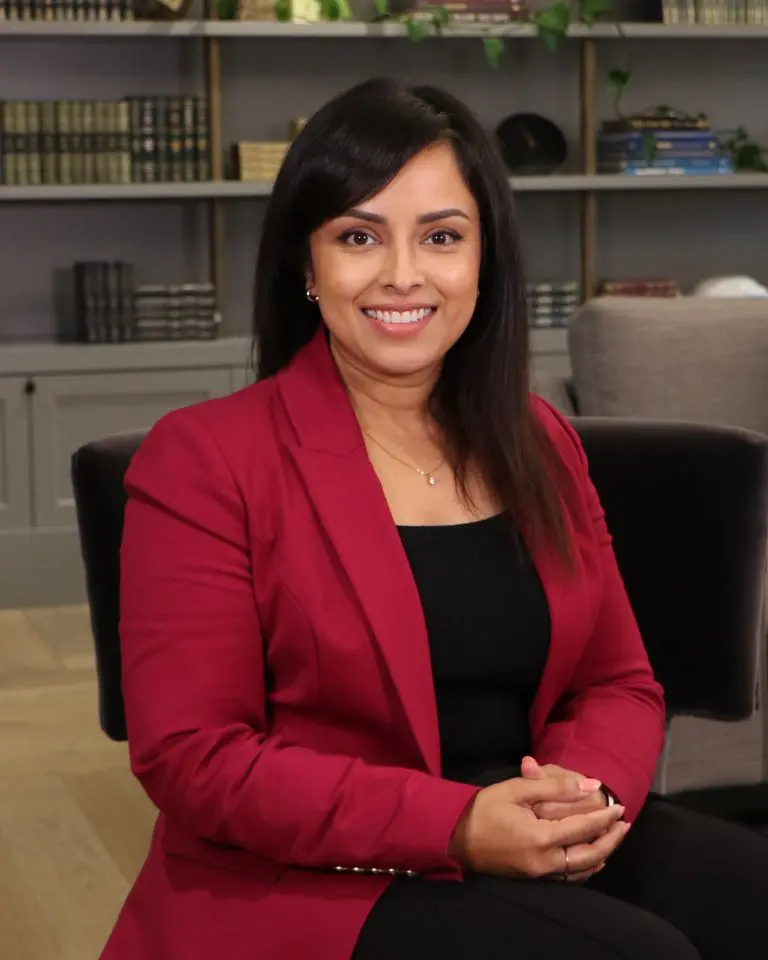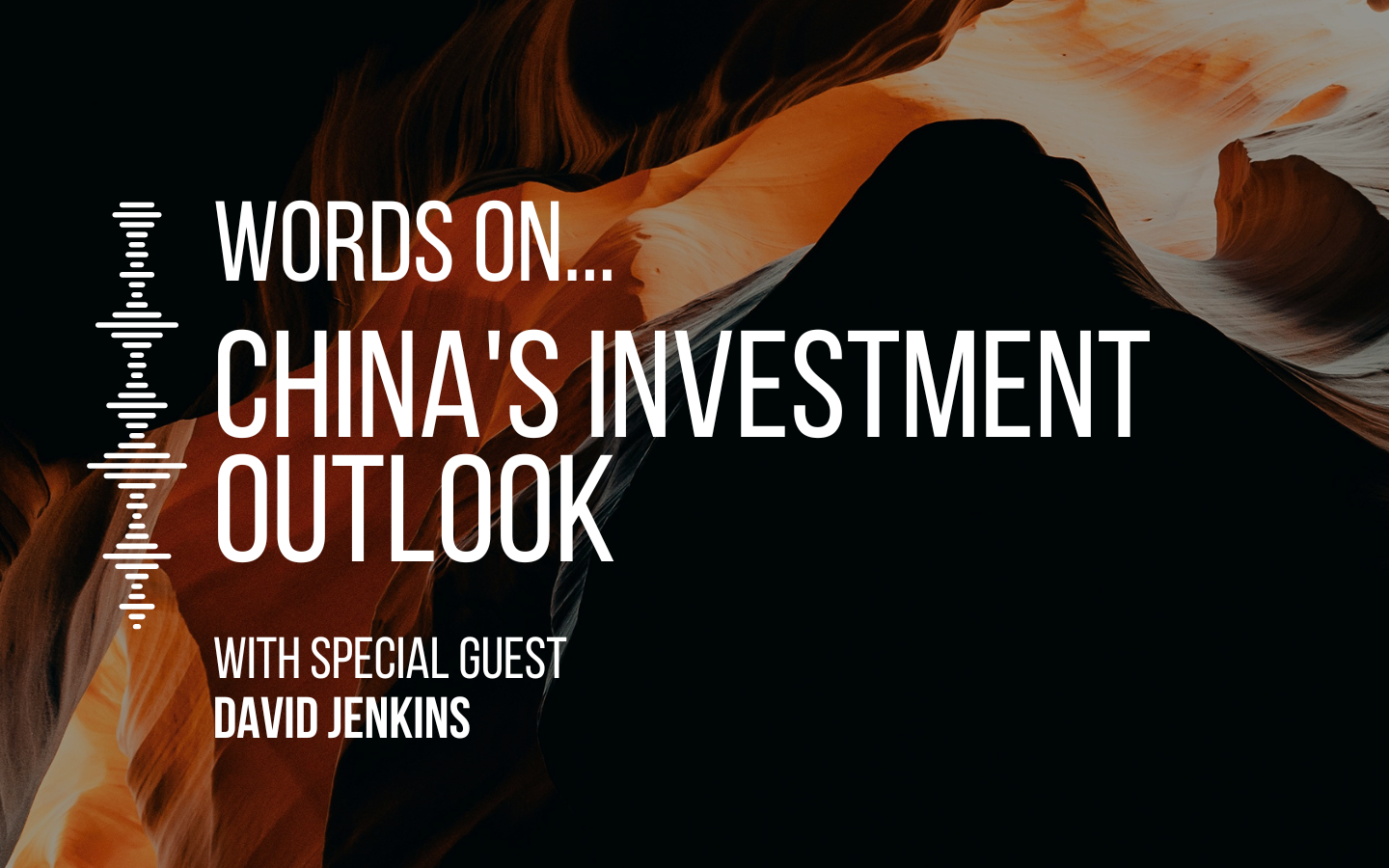


Words on Downsizing
Want to find out more about the Downsizer Contribution Scheme? See here
This episode is also available on Apple Podcast.
Introduction
Welcome to Words on Wealth, a podcast by Evans and Partners that unpacks the key trends and opportunities shaping markets, the economy and your financial well-being. Join us as we make sense of the issues that matter most to you.
Ishara Rupasinghe
Hello and welcome back to Words on Wealth. I’m Ishara Rupasinghe, Executive Director and Senior Strategy Advisor at Evans and Partners in Canberra. I’ll be your host today. In today’s episode, we’re going to discuss all things downsizing your home and I’ll take you through some of the financial opportunities that come about from downsizing, which for people planning for retirement can make a big difference to their retirement wealth. Our guest today is Tim Burke. Tim is a director, head auctioneer and owner at Luton Properties and he runs the business in Canberra with his wife Justine and they’ve been in the industry for quite some time so have extensive experience and has helped many people downsize their homes. So, we’ve asked him to come on the show to share some of his practical insights. So, what are we talking about when we say downsizing? Well, what we’re talking about there is selling your primary residence and generally moving to another typically smaller place. And the reasons for doing this is going to be different for everyone. For some, their house is now too big for their needs or perhaps getting difficult to maintain with age. Sometimes it’s for health reasons and it might be selling to move to aged care or retirement village. And for many people, their home is their biggest asset. So selling it often means freeing up some cash. Not always, because if you’ve got to buy a replacement home, even if it’s a smaller one, you may end up paying about the same or sometimes more. But even if this is the case, there’s still some opportunities from a financial point of view that I want to talk about. And it’s all to do with super. Now there’s something called a downsize of super contribution, which was introduced in 2018. And basically, it was designed for retirees as a final means of topping up their super, which can then give them more retirement income. And just a quick recap of the super contributions that are allowed currently. Concessional contributions are those that are made before tax and the limits are $30,000 per year per individual. Now you can do that regardless of whether you’re working or not up until 67 but after 67 and before you’re 75 you’ve got to meet a work test to make this type of contribution. Then there’s the non-concessional contributions which are made typically with after-tax dollars or savings and you can do up to $120,000 per year. Now the good thing about this one is there is no work test and it can be made until you’re age 75 but, your total super balance has to be under 1.9 million to do this. And so, with these two types of contributions, there are some tight restrictions, but the downsizer of contribution for those who are eligible allows you to make a super contribution of up to 300,000 as a result of selling your primary residence. And now that’s available to anyone that’s over 55 and provided you’ve owned your home for 10 years. Now there’s obviously a few more criteria to be eligible, which you can look up on the ATO website, but those are the key ones. And what I want to highlight there is, you know, if you’re a member of a couple and only one person owns the home, you can actually still both make the contribution. So essentially getting 600,000 into super in total. Plus, you don’t have to buy a new house or actually downsize to a smaller home to be eligible. And you can make the downsize of contribution even if you’ve maximized all your other super contributions and limits. So, for many retirees, this is going to be the final opportunity to boost their super balance. And like I said, which ultimately is going to mean more income for them to live on in retirement. Downsizing a home that you’ve lived in for decades is without doubt challenging for many reasons. And perhaps one of the reasons people might put it off. Look, I think this is a good opportunity to bring Tim into the conversation. Tim, if someone is selling or thinking of selling their home or downsizing, what’s really the first step in getting their home ready for sale?
Tim Burke
Well, it’s probably the first step is getting someone like a real estate agent to come in and actually have a chat to them about what it looks like to sell. A lot of people live in their house for many, many years. Generationally, we see people hold homes. It’s not uncommon to see them for 50 odd years to have that home there. And we don’t live in a house the way we sell a house, which means that it’s a practical measure where we live in it. But when we go to sell it, then we all of a sudden need to make it appeal to someone else, not your family. And quite often that is probably going outside their comfort zone to present their home differently. And they may have maintained their home brilliantly over the last however long they’ve owned the home. However, for most people, it’s probably making some tweaks to ensure that there’s a better market to buy their home.
Ishara Rupasinghe
Yeah, that’s a good one. And perhaps maybe this might be something a lot of people don’t realise or didn’t know to ask their real estate agent. So that’s really helpful. Look, I think perhaps coming into the warmer months, maybe there’s a tendency for people to do some more home improvements. And certainly, I’ve been getting out into the garden a bit more. So, houses are generally looking better. Look, I’ve heard people say that, you know, spring and summer is a better time if you’re selling. Is it actually a better time to sell if you get more money if you sell during these seasons?
Tim Burke
Good point, Ishara. Look, it’s a commonly, I would say, you know, held belief that yes, it is a better time to be able to sell. But it’s for the exact same reasons that you talked about. The reason why people want to get in the garden is the conditions are better to do so. So, all of a sudden they’re out there doing garden. The gardens are growing. They’re looking green, there’s new leaves on the trees etc. So typically, they’ll think well this is the best time. There’s no correlation between the market being better at seasonally in real estate. What it comes down to is a supply and demand issue that’s there. So, in actual fact what happens is there’s generally more homes on in spring. On the other hand, there’s also more people probably out having a look because the weather’s better and there’s just a little bit more activity out there.
Ishara Rupasinghe
Yeah, look, that makes sense. mean, is there, do you have any insight regarding the broader property market and what it’s doing, know, what are prices sort of sitting at more generally?
Tim Burke
Yeah, we’ve seen obviously COVID’s distant history now as far as what happened there. And we saw outrageous prices being got for properties. You could hand the keys over to a real estate agent and say, just go and sell it. And there’d be multiple parties fighting over the right for that. Some of them even buying them off video inspections, not even walking through there. To me, while I did auctions in an office, not even on site. That has changed now. We’ve seen a couple of years of flat growth, if anything, and some reductions in price over the course of that, and a general, re-correction of the marketplace. So, I would say, I would say across the board, things are still selling, but it would be a buyer bias at this point.
Ishara Rupasinghe
Okay, so really someone who’s downsizing and buying another home, would you say sort of timing in terms of market conditions is not really relevant?
Tim Burke
Yeah, correct. Everything’s relative. And if you’re buying and selling in the same market, then you’re effectively buying into the same conditions at that time. In a hot market, there’s different things where there’s some real outliers in results where all of a sudden one place may go significantly higher than the alternatives are. In a market that’s a bit more balanced like it is now, we’re seeing you can almost set your watch to prices as far as what one house will sell compared to another house.
Ishara Rupasinghe
Okay, all right. Look, I think it’s kind of good to know that, you know, trying to sell your house in this coming spring or summer, the pressure is not necessarily there. But look, I should add, you know, in terms of timing, timing is certainly important when it comes to this downsize of super contribution because you’ve got basically 90 days from the date of settlement to make the contribution to your superfund. There’s also a special ATO form that needs to be submitted to your superfund when you make that contribution. So, you’ve got to plan ahead if you want to do this. And while we’re talking about planning and timing, the difficulty with downsizing if you’re wanting to buy another place can be funding. And I’d say, you know, it’s fair to say most people need the cash from the sale of their home to purchase the new one. So Tim, in your experience, how do people manage this timeline?
Tim Burke
Yeah, so there’s a number of different steps that are involved in it. So, first of all, it’s getting us through to have a look at the home and to give advice as to what to do. Now, everyone’s different as far as what they need to do. Some people have maintained their homes differently over the course of its life. Some people are practically ready to go from the get-go, but most people will involve some sort of project management there, whether it be an update through with paint, with floor coverings, with lighting, with gardens. If there’s any major capital works to be done as well, we start to look at renovations through there. So, there’s different levels of what is, what you should do. And, you know, on the very, on the bottom end of that, you could look at doing absolutely nothing. However, doing absolutely nothing will generally result in, will result in a figure that is indicative of what you’ve done.
Ishara Rupasinghe
Excellent. Yeah, look, obviously everyone who is selling their homes, trying to look at getting the best price possible. Do you think that method of sale auction versus private treaty, does that have an impact?
Tim Burke
Yeah, absolutely. I certainly know what we sort of look at pushing when we’re going into a property there. We’re looking at, like method of sale really comes down to process that’s taken by the agent there. In the Canberra market, for instance, auction is a method of sale, which is widely used through there. It’s probably something that we see more of from a house point of view. Whereas pricing is something that you’ll see on apartments, for example, a lot more of. Because you can compare apples with apples with apartments. Houses are quite different from that. I talk about process because it’s more what auction offers, for example, as a process in terms of finality with a contract for sale, a deadline, and also a chance of competition. That’s where you see that as being a method of sale used.
Ishara Rupasinghe
Yeah, okay. So for someone who is downsizing and wanting to buy another place and they need the funds from the sale of their home, can they adjust sort of settlement dates and things like that to make that transition easier or avoid sort of bridging finance?
Tim Burke
Absolutely, and whether it be auction or private treaty, you can still dictate what the actual settlement terms are. Now, settlement terms are what you accept as a deposit. Typically, 10 % is what the contract calls for. However, 5 % is somewhat the norm these days as far as an expectation from buyers. The actual length of settlement is going to be the important one for your clients because that’s the date that they need to be out of the property by now. They may have something lined up, in which case they’re trying to coordinate those dates. However, they may also look at, I need to give myself enough time to be able to find the next opportunity there. Maybe I haven’t actually decided what I’m going to and what I’m downsizing to in this case. And so then I might need longer to do that so that they don’t get left with a contract which potentially offers only 30 days, in which case they need to, they’ve exchanged contracts with their purchaser or their home, but then only have 30 days in which to move everything out be lined up at their next opportunity and to be able to hand the keys over to the new buyer.
Ishara Rupasinghe
Yeah, fair enough. it sounds like planning these things out, perhaps with your real estate agent, that’s probably something that people should be doing.
Tim Burke
Absolutely. It’s working back from the date that you want to actually be out of the property and working back from there. So it’s however long the settlement might be. And from a downsizer who hasn’t got something there, they may often require 90 to 120 days, which is not unacceptable from a purchaser’s point of view or a seller’s point of view, 90 to 120 days. And then we say, well, that’s when we need to have exchange contracts before that. But then we say, well, we need to be on the market for around about a month if we’re looking at an auction program. So, we’re working back 30 days from there. And then we’re looking at the preparation of how long it may take to get that home on the market. And that’s why we talk about what does the preparation look like for your clients as to getting their house on the market? Because that is going to vary from case to case.
Ishara Rupasinghe
Yeah, interesting. Look, I think there’s a lot that goes into selling your home and especially if you’ve lived in it for decades, but by the sounds of it, if you plan it well, it can go pretty smoothly in your experience.
Tim Burke
Yeah, there’s very few occasions where it doesn’t. Perfect planning, as they say, and it really is something that if you put the effort into it, there’s not a lot of things that can go wrong. There would be bizarre market circumstances that you have no control over anyway, and you really shouldn’t be trying to think of what they may be, because you could rack your brains and you’d go sleepless trying to figure it out. But the preparation, if you prepare well, you listen to the feedback, and then inevitably you’ll get the right result.
Ishara Rupasinghe
Yeah, good, good. That’s really good to know. And I know people who have downsized, have sometimes even engaged some extra help, as in professionals that can help you declutter, sell, donate your things, organise and even pack and move into the new place. So now that certainly can make that whole process much less stressful, especially if you’re bit older. And look, I think that’s a really good thing and sort of an incentive maybe to know that there are these sort of really structured steps that you can take when making such a big financial decision. And like I said, those financial incentives of downsizing are certainly worth thinking about. And it’s going back to what I said about super and the opportunities of actually selling your home. And, you know, the reason we might want to do this super contribution as a result of downsizing your home is because once the money is inside of super, it can be invested, and then future earnings can actually be tax free if you’re in that retirement pension mode. So even if you can’t start a pension though, because perhaps you’ve reached the caps, the tax on those investment earnings is still only 15%, which is why in Australia superannuation is still one of the most tax effective investment vehicles. What all of this means in practical terms is say, you we’ve got a 65 year old couple that made a total downsize of contribution of $600,000. And let’s say they were eligible to start retirement pensions on this amount. Basically, their retirement income could increase by $30,000 per year. And this income is tax free and that $30,000 per year could either, you know, improve their standard of living, help them travel a bit more, help them, you know, cover medical costs. So, it can certainly make a difference. Importantly, what this cash injection does is it also helps your super balance last longer. And I think with people living longer, this is really important. And it’s definitely a concern for a lot of retirees, especially if you don’t want to be in a position where you’re relying on the age pension. But of course, not everyone is going to have the full 300 or 600,000 left over from downsizing to a new home. But even if you don’t, let’s say your home is sold for the same price as the new home resulting in a break-even cash position. If you’ve got some savings built up, you can still put in 300,000 each as a downsize of contribution. And for those who are over 75 or have over 1.9 million in super, this is where the opportunity is with downsizing because under any other circumstance, you wouldn’t be able to contribute these savings into super. Tim, in your I mean, when you’re downsizing or when you’re selling your home, moving to another, buying a smaller home doesn’t necessarily mean cheaper, right?
Tim Burke
Correct. I think perfect example is probably looking at retirement options over 55 type retirement homes, which I think that’s one of the reasons why I think a lot of people stay in their current residence for longer is they get their first look at those prices and they’re absolutely horrified. They’ll be downsizing in terms of their living space. Absolutely, they’ll be downsizing in terms of their land space. And then there’s other charges that are associated with it that they don’t have on their standard freehold title that they currently have there. it’s big thing to consider. They’ll also, mean downsizing will also be about ease of living too. So downsizing from an enormous block that you spend endless hours in the garden, the maintenance that comes with a larger property like that, they’re making their life easier by doing it. So, they’re sometimes increasing their standard of as well.
Ishara Rupasinghe
Yeah, exactly. I’ve certainly seen that and increasing their standard of living, but perhaps reducing their maintenance costs and those sort of things and time and effort and all of that. Look, mean, even if, let’s say we had the same scenario where you sell and buy for the same price but for those who don’t have any savings, there’s still an opportunity here to use this downsizer provision and that’s to reduce tax on your super when it passes to your beneficiaries. Now, I’m not going to get into too much detail because this is a rather complex strategy, but basically you can withdraw some of your super tax free for retirees older than 60 and re-contribute it back into your super fund as a downsizer contribution. And essentially what this helps do is to convert the taxable components of your superfund to tax-free and what that does is it saves your estate 17% tax when your super is inherited. So, you know that can mean some significant savings to people especially if you’ve you know spent most of your career building your super via employer contributions or salary sacrifice, those types of contributions are typically considered taxable in the hands of beneficiaries or adult beneficiaries. So, it’s certainly worth thinking about. And like I said, perhaps this break-even situation happens quite a bit with property prices the way they are. And Tim, you’ve talked about, know, type of property and things like that. Do you think sort of longer term for a retiree you know, it should be really about that lifestyle and not so much, you know, buying a block, a property with a block of land for investment purposes.
Tim Burke
Absolutely. If I look at, you know, again, anecdotally, if you’re looking across what we’ve done in the past, I think the lifestyle is precisely why you should be doing it because, I mean, you could go mad trying to figure out where markets are and what’s the peak of the market. The problem with that is, of course, that we don’t know until it’s reached the top or the bottom. And it’s too late anyway, so you can’t go back in time. We need to be treating these more like what fits in with your lifestyle, because we make things work. But the lifestyle is, we see a lot of people that we come across in our line of work that probably wait far too long for this and then they’re having to get, it’s becoming overwhelming and then it mentally hurts them further down the track. Maybe they’ve got to get other family members in to help them, professional assistants out there as well. It’s better when it’s under your own steam because, and it will just work out. It just works out, but that’s the way to place it.
Ishara Rupasinghe
Yeah, exactly. Look, and I think the outcomes are probably better when you can do it in your own time and when you’ve got the capacity mentally and physically to make these pretty big decisions. And we certainly see helping a lot of retirees, more and more people are thinking about downsizing their home for those lifestyle reasons you’ve talked about, Tim. But look, your advice today has been extremely helpful and no doubt for those who are listening who are thinking of downsizing or perhaps it was sort of in the back of their mind, think you’ve given some really practical things to think about. So, just to sort of close off today’s episode, look, if you’re wanting to make a downsize, a super contribution as well, and perhaps you just want to understand how you can optimize your super as a result of downsizing your home, I’d say, you know, talk to your advisor. There’s obviously some complex strategies and areas to think about. Talk to your real estate agent. As Tim mentioned, there’s lot of things that you can plan out and it can make a big difference. So, if you’ve enjoyed today’s session and you want to know more about downsizing, we’ve written an insight you can access by clicking on the link in the show notes. We’ve really enjoyed presenting today and Tim, thanks again for your time. It’s been really valuable.
Tim Burke
Pleasure.
Ishara Rupasinghe
So, if you’d like to be alerted when our next podcast episode is airing, please subscribe. We look forward to you joining us next time. Thanks.
Disclaimer
This podcast was prepared by Evans and Partners Proprietary Limited AFSL number 318075. Any advice is general advice only and was prepared without taking into account your objectives, financial situation or needs. Before acting on any advice you should consider whether the advice is appropriate to you. Seeking professional personal advice is always highly recommended. Where this presentation refers to a particular financial product you should obtain a copy of the relevant PDS, TMD or offer document before making any investment decisions. Past investment performance is not a reliable indicator of future investment performance. Directors, employees, and officers at Evans & Partners, and its related entities, may have holdings in securities listed. Any taxation information is general and should only be used as a guide.
Tags
Disclaimer
This podcast was prepared by Evans and Partners Pty Limited AFSL 318075.
Any advice is general advice only and was prepared without taking into account your objectives, financial situation or needs. Before acting on any advice, you should consider whether the advice is appropriate to you. Seeking professional personal advice is always highly recommended. Where this presentation refers to a particular financial product, you should obtain a copy of the relevant PDS, TMD or offer document before making any. Past performance is not a reliable indicator of future performance.
Directors, employees and officers of Evans and Partners and its related bodies corporate may have holdings in the securities discussed. Any taxation information is general and should only be used as a guide.
This communication is not intended to be a research report (as defined in ASIC Regulatory Guides 79 and 264). Any express or implicit opinion or recommendation about a named or readily identifiable investment product is merely a restatement, summary or extract of another research report that has already been broadly distributed.


